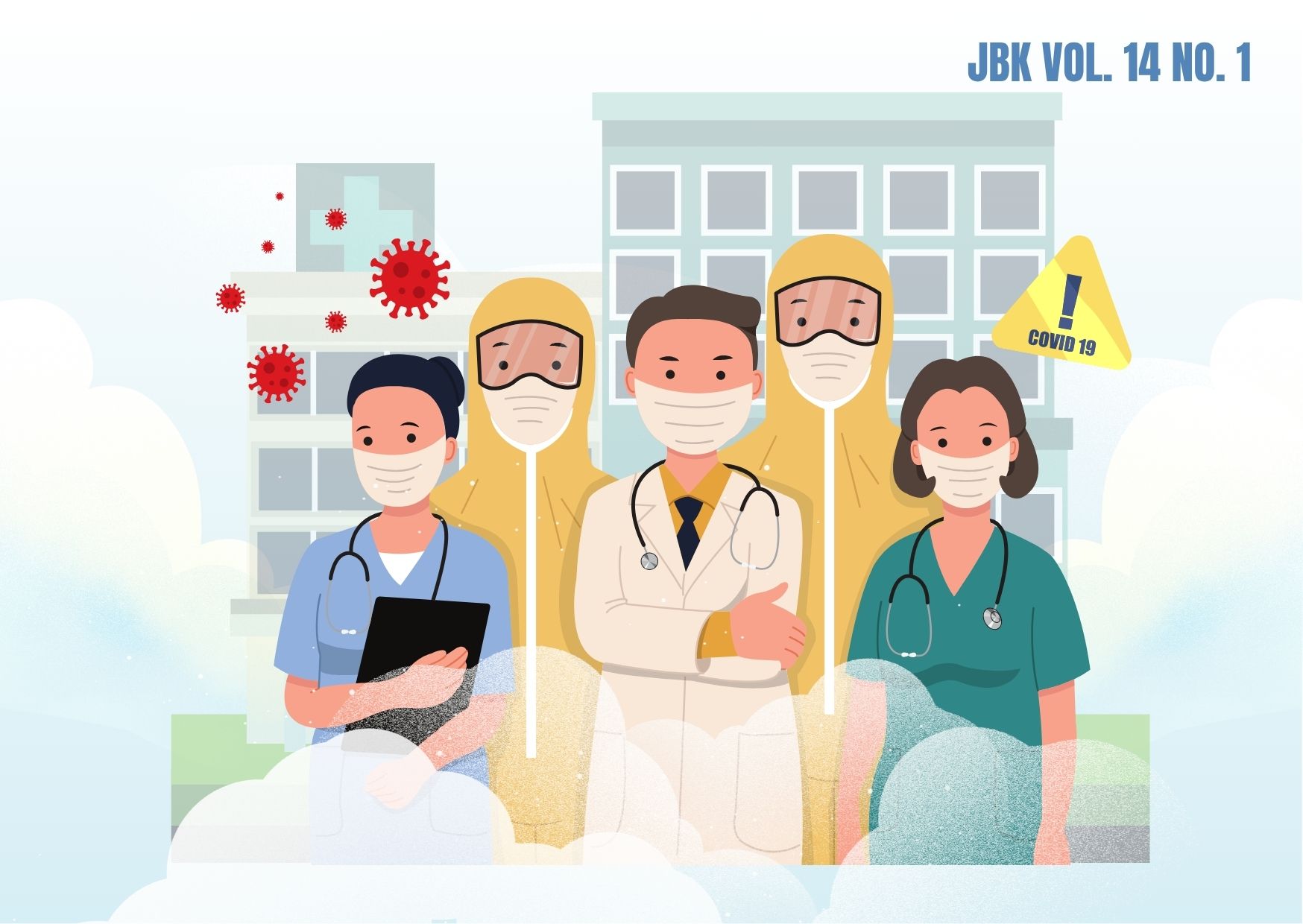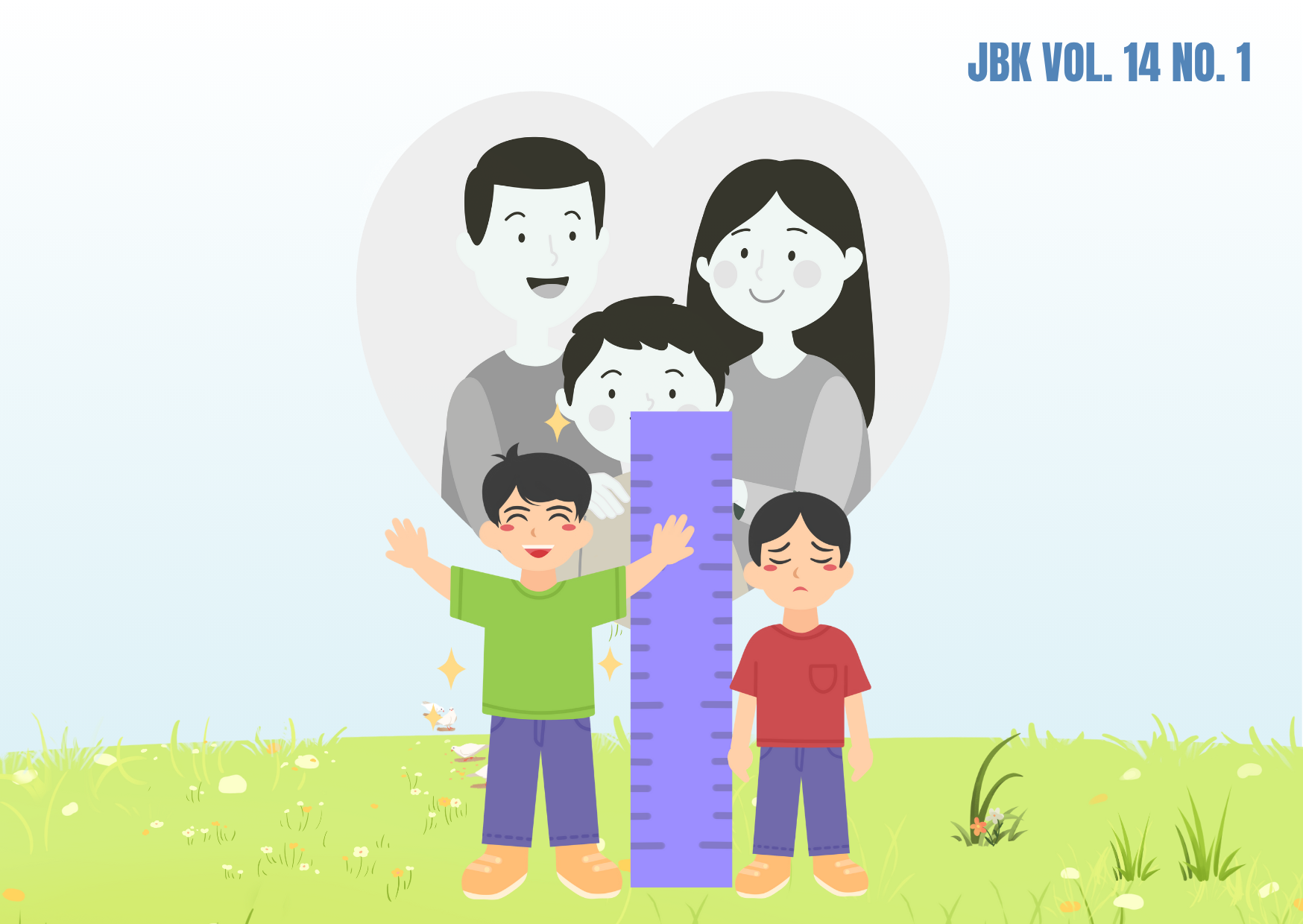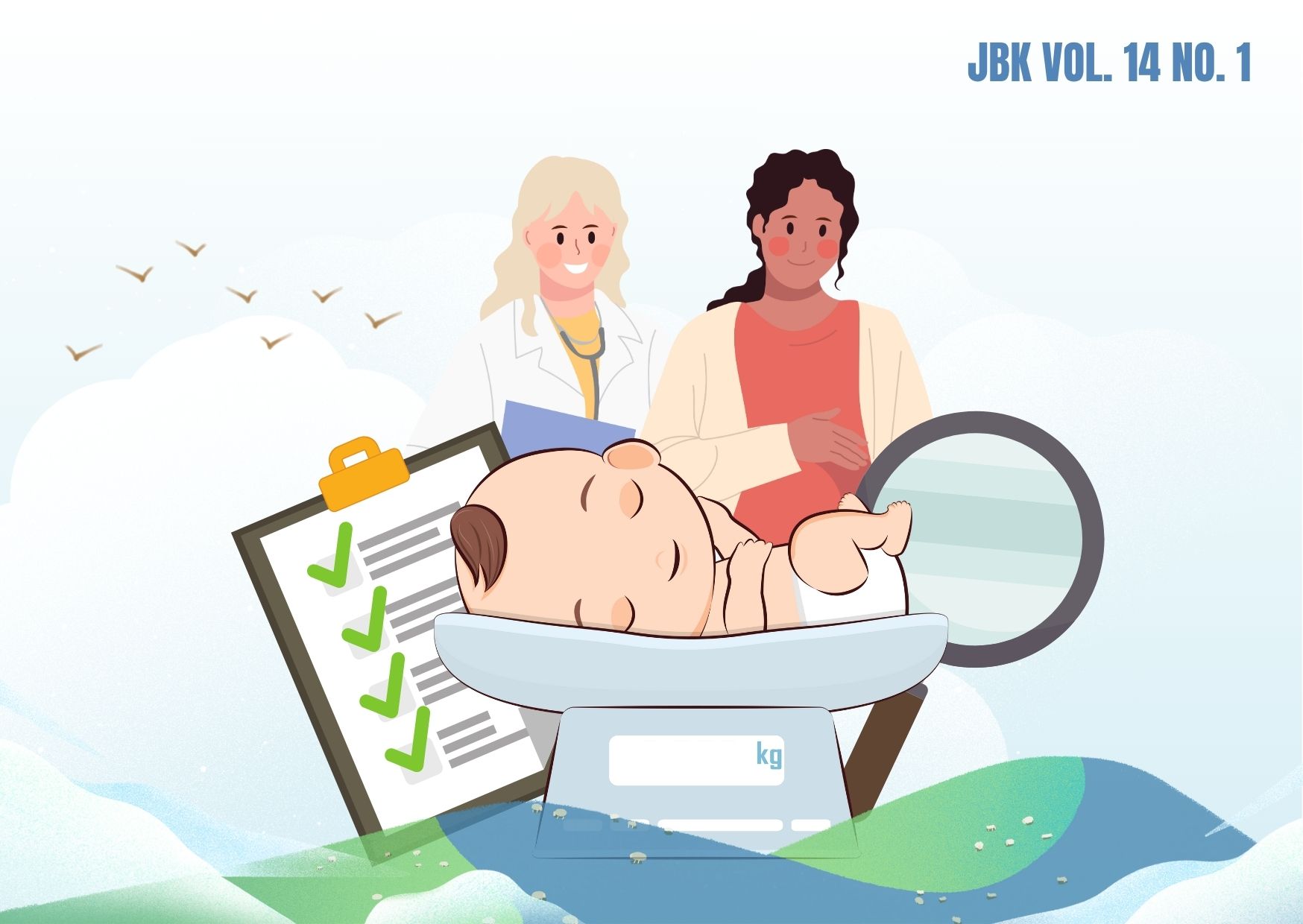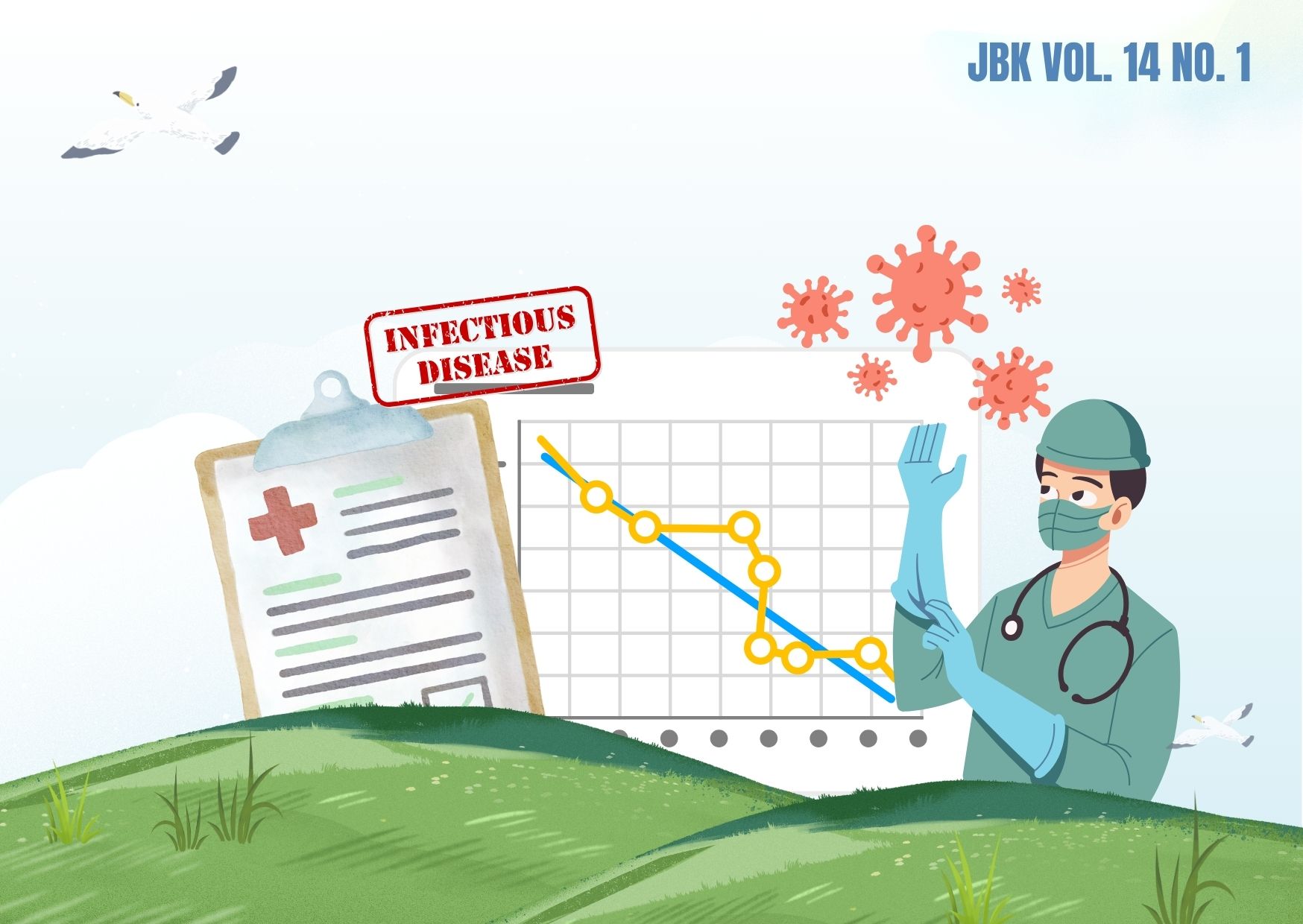DETERMINANTS OF CONTRACEPTIVE USE IN NTB PROVINCE BASED ON THE 2019 SKAP DATA ANALYSIS
Downloads
Prevention of pregnancy by various contraceptive methods remains an important part of medical practice and can occur during any reproductive cycle. The more types of contraceptive methods available, the more choices of contraceptive methods available for people. Many determinant factors cause women of childbearing age to choose contraceptives that suit their needs. This study aims to determine the determinants affecting women of childbearing age using contraceptives in West Nusa Tenggara Province. The design of this study is an analytical study (descriptive analysis) with a cross-sectional approach using secondary data from the 2019 SKAP Family Planning and Family Development Population Accountability Performance Survey (KKBPK) in the Province of West Nusa Tenggara (NTB). Data were analyzed using bivariate analysis using Chi-Square and multivariate with logistic regression. The results showed that the determinants that affect women of childbearing age in using contraceptive methods include: unmet need, age, parity, previous family planning experience, decision-making, knowledge, and visits to health facilities. The results of multivariate analysis of the most dominant decision-making factors influencing the use of contraceptive methods in women of childbearing age with an OR value of 174,666. It can be interpreted that the decision-making ability of women of childbearing age is 174,666 times more influencing the use of contraceptive methods compared to other variables. This study recommends empowering women of childbearing age through increasing knowledge by maximizing the individual counseling process so that women of childbearing age can choose contraceptive methods according to their needs.
Ministry of Law and Human Rights. Peraturan Pemerintah Republik Indonesia Nomor 87 Tahun 2014 tentang Perkembangan Kependudukan dan Pembangunan Keluarga, Keluarga Berencana, dan Sistem Informasi Keluarga. Presiden Republik Indonesia. 2015. Available from: https://peraturan.bpk.go.id/Home/Details/5531
Colquitt CW, Martin TS. Contraceptive Methods: A Review of Nonbarrier and Barrier Products. J Pharm Pract [Internet]. 2017;30(1):130–135. Available from: https://doi.org/10.1177/0897190015585751
Woodhams EJ, Gilliam M. Contraception. Ann Intern Med [Internet]. 2019;170(3):ITC18–32. Available from: https://doi.org/10.7326/AITC201902050
Hanafi F. Pemilihan Metode Kontrasepsi oleh Ibu Akseptor KB. J Kedokt [Internet]. 2019;4(2):55–62. Available from: http://dx.doi.org/10.36679/kedokteran.v4i2.105
Vigoureux S, Le Guen M. Current Knowledge on Contraceptive Knowledge in France: CNGOF Contraception Guidelines. Gynécologie Obs Fertil Sénologie [Internet]. 2018;46(12):777–785. Available from: https://doi.org/10.1016/j.gofs.2018.10.005
Bernard C, Zhao Q, Peipert JF. Dual Method Use among Long-Acting Reversible Contraceptive Users. Eur J Contracept Reprod Heal Care [Internet]. 2018;23(2):97–104. Available from: https://doi.org/10.1080/13625187.2018.1445850
Pradhan MR, Patel SK, Saraf AA. Informed Choice in Modern Contraceptive Method Use: Pattern and Predictors among Young Women in India. J Biosoc Sci. 2020;52(6):846–859. Available from: https://doi.org/10.1017/S0021932019000828
National Population and Family Planning Board, Central Bureau of Statistics, Ministry of Health, and ICF. Indonesia Demographic and Health Survey 2017 [Internet]. Jakarta, Indonesia: National Population and Family Planning Board, Central Bureau of Statistics, Ministry of Health, and ICF; 2018. Available from: http://dhsprogram.com/pubs/pdf/FR342/FR342.pdf
National Population and Family, Planning Board. Survei Kinerja dan Akuntabilitas Program KKRPK. Jakarta: Puslitbang KB dan KS; 2020.
Coleman-Minahan K, Potter JE. Quality of Postpartum Contraceptive Counseling and Changes in Contraceptive Method Preferences. Contraception [Internet]. 2019;100(6):492–497. Available from: https://doi.org/10.1016/j.contraception.2019.08.011
Ayvazian A. Contraception Choices of Female University Students. J Obstet Gynecol Neonatal Nurs [Internet]. 1981;10(6):426–429. Available from: https://doi.org/10.1111/j.1552-6909.1981.tb00986.x
Mahendra IGAA, Wilopo SA, Sukamdi, Putra IGNE. The Role of Decision-Making Pattern on the Use of Long-Acting and permanent Contraceptive Methods among Married Women in Indonesia. Eur J Contracept Reprod Heal Care [Internet]. 2019;24(6):480–486. Available from: https://doi.org/10.1080/13625187.2019.1670345
Rubin SE, Felsher M, Korich F, Jacobs AM. Urban Adolescents' and Young Adults' Decision-Making Process Around Selection of Intrauterine Contraception. J Pediatr Adolesc Gynecol [Internet]. 2016;29(3):234–239. Available from: https://doi.org/10.1016/j.jpag.2015.09.001
Hariastuti I, Baroya N, Handini YR, Wicaksono DBC. Determinan Penggunaan Metode Kontrasepsi Jangka Panjang di Jawa Timur Tahun 2017. BIOGRAPH-I [Internet]. 2021;1(1):24–32. Available from: https://doi.org/10.19184/biograph-i.v1i1.23619
Amran Y, Damayanti R. Hubungan Antara Motivasi Keluarga Berencana dan Persepsi terhadap Alat Kontrasepsi dengan Pola Penggantian Metode Kontrasepsi di Nusa Tenggara Barat. J Kesehat Reproduksi [Internet]. 2018;9(1):59–67. Available from: https://ejournal2.litbang.kemkes.go.id/index.php/kespro/article/view/884/397
Aldila D, Damayanti R. Persepsi terhadap Alat Kontrasepsi dengan Keputusan Penggunaan MKJP dan Non MKJP. Hasanuddin J Midwifery. 2019;1(2):58–65. Available from: http://pasca.unhas.ac.id/ojs/index.php/hjm/article/view/2277
Ermi N. Penggunaan Kontrasepsi pada Pasangan Usia Subur saat Pandemi COVID-19 di Indonesia: Literature Review. J Imiah AVICENNA. 2021;16(2):53–63. Available from: https://media.neliti.com/media/publications/375236-the-use-of-contraception-in-couples-of-r-8239af60.pdf
National Population and Family Planning Board. Laporan Kinerja Instansi Pemerintah. BKKBN [Internet]. 2020. Available from: https://www.bkkbn.go.id/pocontent/uploads/LAKIP-2020-2021/LAKIP BKKBN-TAHUN 2020.pdf
Aryanti H, Ani LS, Karmaya INM. Faktor-Faktor yang Berhubungan dengan Penggunaan Kontrasepsi pada Wanita Kawin Usia Dini di Kecamatan Aikmel, Kabupaten Lombok Timur. Pub Heal Prev Med Arc. 2014;2(2):189–197. Available from: https://media.neliti.com/media/publications/21462-ID-factors-associated-with-contraceptive-use-among-early-married-couples-in-aikmel.pdf
Sastroasmoro S dan Ismael S. Dasar-Dasar Metodologi Penelitian Klinis. Jakarta: CV. Sagung Seto; 2011.
Worku SA, Mittiku YM, Wubetu AD. Unmet Need for Family Planning in Ethiopia and Its Association with Occupational Status of Women and Discussion to her Partner: A Systematic Review and Meta-Analysis. Contracept Reprod Med. 2020;5(1):1–10. Available from: https://doi.org/10.1186/s40834-020-00121-w
Jatlaoui TC, Riley HEM, Curtis KM. The Safety of Intrauterine Devices among Young Women: A Systematic Review. Contraception. 2017;95(1):17–39. Available from: https://doi.org/10.1016/j.contraception.2016.10.006
Dewi PHC, Notobroto HB. Rendahnya Keikutsertaan Pengguna Metode Kontrasepsi Jangka Panjang pada Pasangan Usia Subur. J Biometrika dan Kependud. 2014;3(1):66–72. Available from: http://journal.unair.ac.id/JBK@rendahnya-keikutsertaan-pengguna-metode-kontrasepsi-jangka-panjang-pada-pasangan-usia-subur-article-8582-media-40-category-3.html
Batur P, Bowersox N, McNamara M. Contraception: Efficacy, Risks, Continuation Rates, and Use in High-Risk Women. J Women's Heal [Internet]. 2016;25(8):853–856. Available from: https://doi.org/10.1089/jwh.2016.5942
Gomez-Marcos MA, Gomez-Sanchez L, Patino-Alonso MC, Recio-Rodriguez JI, Gomez-Sanchez M, Rigo F, Marti R, Agudo-Conde C, Maderuelo-Fernandez JA, Ramos R, Garcia-Ortiz L, Rodriguez-Sanchez E. Capacity Adiposity Indices to Identify Metabolic Syndrome in Subjects with Intermediate Cardiovascular Risk (MARK Study). PLoS One [Internet]. 2019;14(1):1–16. Available from: https://doi.org/10.1371/journal.pone.0209602
Bahu R, Hasania E, Hilamuhu F. Hubungan Paritas dan Dukungan Suami dengan Rendahnya Minat Penggunaan Alat Kontrasepsi Metode Tubektomi di Puskesmas Tibawa. Akademika. 2019;8(1):67–77. Available from: http://dx.doi.org/10.31314/akademika.v8i1.299
Zegeye B, Ahinkorah BO, Idriss-Wheeler D, Olorunsaiye CZ, Adjei NK, Yaya S. Modern Contraceptive Utilization and Its Associated Factors among Married Women in Senegal: A Multilevel Analysis. BMC Public Health [Internet]. 2021;21(1):1–13. Available from: https://doi.org/10.1186/s12889-021-10252-7
Gafar A, Suza DE, Efendi F, Has EMM, Pramono AP, Susanti IA. Determinants of Contraceptive Use among Married Women in Indonesia. F1000Research [Internet]. 2020;9:1–9. Available from: https://doi.org/10.12688/f1000research.22482.1
Destiwi M. Penggunaan Metode Kontrasepsi Susuk KB di Jawa Timur (Analisis Data SUSENAS 2015). J Biometrika dan Kependud [Internet]. 2019;8(1):32–41. Available from: http://dx.doi.org/10.20473/jbk.v8i1.2019.32-41
Kisid K. Faktor yang Mempengaruhi Pemilihan IUD Pasca Plasenta pada WUS di Puskesmas Wilayah Kota Mataram. J Penelit dan Kaji Ilm Kesehat Politek Medica Farma Husada Mataram. 2021;7(1):38–43. Available from: https://www.lppm.poltekmfh.ac.id/index.php/JPKIK/article/view/222
Dewi GNT, Nugroho RD, Dharmawan Y. Faktor Risiko yang Berhubungan dengan Penggunaan Metode Kontrasepsi Jangka Panjang pada Akseptor Wanita di Desa Lengkong Kecamatan Rakit Kabupaten Banjarnegara Tahun 2019. J Kesehat Masy. 2020;8(2):210–216. Available from: https://ejournal3.undip.ac.id/index.php/jkm/article/view/26329
Amran Y, Nasir NM, Dini Dachlia FY, Utomo B, Ariawan I, Damayanti R. Perceptions of Contraception and Patterns of Switching Contraceptive Methods among Family-Planning Acceptors in West Nusa Tenggara, Indonesia. J Prev Med Public Heal [Internet]. 2019;52(4):258–264. Available from: https://doi.org/10.3961/jpmph.18.198
Karra M, Pearson E, Pradhan E, De Silva R, Samarasekera A, Canning D, Shah I, Weerasekera D, Senanayake H. The Effect of A Postpartum IUD Intervention on Counseling and Choice: Evidence from A Cluster-Randomized Stepped-Wedge Trial in Sri Lanka. Trials. 2019;20:1–15. Available from: https://doi.org/10.1186/s13063-019-3473-6
Japaridze T, Kristesashvili J, Imnadze P. The Influence of Sources of Information on Contraception Use in Georgia. Georgian Med News. Georgian Med News. 2015;Nov (248):16–20. Available from: https://pubmed.ncbi.nlm.nih.gov/26656545/
Copyright (c) 2023 Jurnal Biometrika dan Kependudukan

This work is licensed under a Creative Commons Attribution-NonCommercial-ShareAlike 4.0 International License.
Copyright©2022 Jurnal Biometrika dan Kependudukan (Journal of Biometrics and Population)
This work is licensed under a Creative Commons Attribution-NonCommercial-ShareAlike 4.0 International License.
1. Copyright of all journal manuscripts is held by the Jurnal Biometrika dan Kependudukan.
2. Formal legal provisions to access digital articles of the electronic journals are subject to the provision of the Creative Commons Attribution-ShareAlike license (CC BY-NC-SA), which means that Jurnal Kesehatan Biometrika dan Kependudukan to keep, transfer media/format, manage in the form of databases, maintain, and publish articles.
3. Published manuscripts both printed and electronic are open access for educational, research, and library purposes. Additionally, the editorial board is not responsible for any violations of copyright law.



































